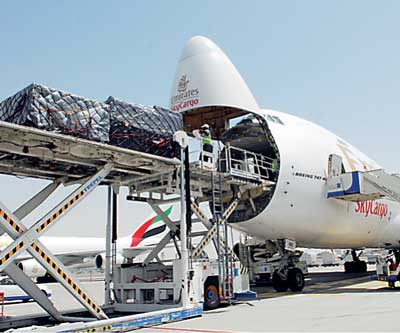Friday Mar 06, 2026
Friday Mar 06, 2026
Wednesday, 16 November 2016 00:01 - - {{hitsCtrl.values.hits}}
 Emirates has retired the last Airbus A330 and A340 aircraft in its fleet from active service.
Emirates has retired the last Airbus A330 and A340 aircraft in its fleet from active service.
This makes Emirates the first and only airline in the world to operate a fleet of all Airbus A380 and Boeing 777 aircraft for its passenger flights.
Emirates recently retired A6-EAK from operational service. The aircraft was the last of the 29 Airbus A330 aircraft that had been operating as part of its fleet. A6-EAK joined Emirates in 2002 and had flown for over 60,000 hours travelling close to 45 million kilometres in 14.5 years. That distance is equivalent to almost 60 return journeys between the earth and the moon.
Emirates has also phased out A6-ERN, the last serving Airbus A340 in the fleet which had joined the airline in 2004, originally  manufactured in 1999.
manufactured in 1999.
Since January 2015, Emirates has retired 18 A330 and 5 A340 aircraft from its fleet. The average age of the Airbus A330 and A340 aircraft phased out from the fleet is 16.5 years – a figure which is well below the industry standard retirement age of 25 years.
In addition to the aircraft that have been retired from active service since January 2015, Emirates plans to further phase out some 25 aircraft over the course of 2017 and 2018 to ensure that the operating fleet remains modern and efficient while offering customers a higher level of comfort and safety.
The retirement of older aircraft is balanced by the induction of younger, more modern aircraft into the fleet. This has resulted in Emirates operating one of the youngest fleets in the industry with an average age of 5.2 years. The two youngest aircraft in the fleet – Emirates’ 85th A380 - the first of the new generation A380 aircraft delivered in October 2016 and Emirates’ 125th Boeing 777-300ER – are less than two weeks old.
Emirates’ fleet of all Airbus A380 and Boeing 777 aircraft will also have a smaller environmental impact as both aircraft types have better fuel efficiency and emissions performance than the retired aircraft.
For the calendar year 2016 Emirates will have taken delivery of 36 new aircraft - 20 Airbus A380s and 16 Boeing 777. This also includes the next generation Boeing 777-300ER aircraft - with upgraded business class seats and other features including a lower fuel burn ratio - to be delivered from November 2016.
Emirates is currently the largest operator of the Airbus A380 and Boeing 777 aircraft with 85 Airbus A380s and 160 Boeing 777s in its fleet.
Out of the 234 aircraft worth over $ 112 billion that Emirates has in its order book, 150 will be the new Boeing 777X aircraft that will be delivered starting 2020. The aircraft will feature a range of passenger focused amenities on board including larger windows, higher ceiling, and a wider cabin in addition to being more fuel efficient than older aircraft.
Emirates SkyCargo, the freight division of Emirates, has been named Air Cargo Carrier of the Year at the 20th edition of the Global Freight Awards ceremony held in London. The award was accepted by David Taylor, Emirates Cargo Sales Manager – Key Accounts in front of an audience of more than 500 guests from the global transport and freight community at a gala dinner held in London at the Lancaster London Hotel on 3 November.
The Global Freight Awards, supported by the 164 year old freight publication Lloyd’s Loading list, is held annually to recognise and reward innovative ideas and achievements that have set a benchmark for excellence in the freight industry. Emirates SkyCargo was awarded the much coveted Air cargo Carrier of the Year title for 2016 at the end of a two stage voting process open to readers of Lloyd’s Loading List. Overseen by the editorial team of the publication to ensure transparency and independence, the award represents the voice of the industry and that of Emirates SkyCargo’s customers.
Emirates SkyCargo is the largest international airline cargo operator with a fleet of over 250 wide bodied aircraft, including 15 dedicated freighters- 13 Boeing 777-Fs and two B747-400ERFs. The carrier connects cargo customers in 154 destinations across 82 countries in six continents through its hub in Dubai. A global facilitator of trade and commerce, Emirates SkyCargo operates dedicated freighter services to over 50 global destinations in addition to offering cargo capacity on board its passenger flights. Most recently, the carrier launched a weekly freighter service from Oslo to Dubai to facilitate the increasing exports of fresh sea food from the Scandinavian country to the rest of the world.